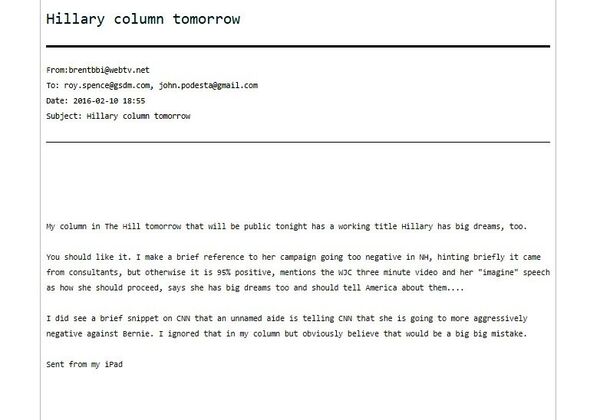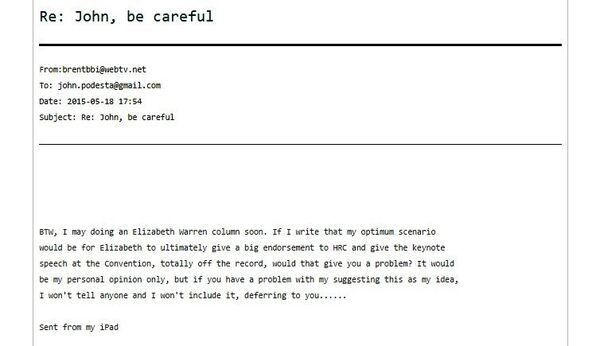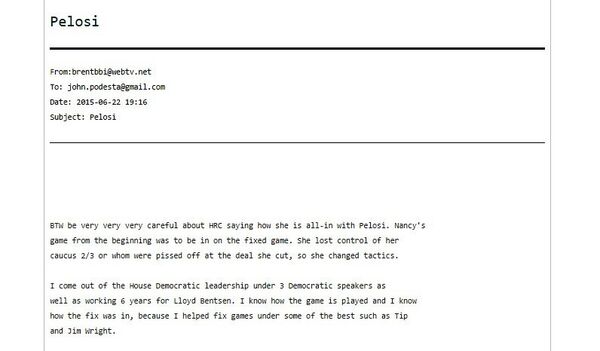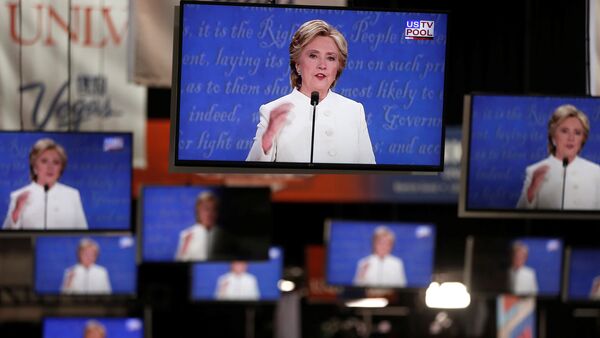After months of corrosive, divisive campaigning, its finally election day for the US. And one of the key messages that has dominated the leadership battle for months, continues to resonate loudly on Tuesday, November 8: the allegation that Hillary Clinton is "crooked."
The latest release by WikiLeaks has shed more light on the relationship between Clinton's top adviser John Podesta, and a prominent liberal journalist for the Hill, a Washington DC newspaper, Brent Budowsky.
RELEASE: The Podesta Emails Part 35 #PodestaEmails #PodestaEmails35 #HillaryClinton #imWithHer https://t.co/wzxeh7hZLU pic.twitter.com/949fP6TwTr
— WikiLeaks (@wikileaks) November 8, 2016
In one exchange on the February 10, 2016, Budowsky reassures Podesta that an upcoming political column on Hillary Clinton will be "95% positive". He adds: "You should like it."
Budowsky also acknowledged that he was aware that other political pundits were focused on Clinton planning to be more aggressive in her rhetoric against Clinton's then Democratic Primary competitor, Bernie Sanders. Budowsky thought that Clinton's plan was misguided but assured Clinton's campaign chair, Podesta, "I ignored that in my column."

This amounts to a damning erosion of the western ideals of an independent press holding politicians to account, as democracy's "fourth estate."
An earlier Podesta email leak from Monday, November 7, this week, provided another example of cosy collusion between the decades-long veteran politician Hillary Clinton, through her top staff, and US journalists.
Brent Budowsky, sent an email on the May 15, 2016, to John Podesta entitled, "John, be careful".
Budowsky informed Podesta that he was planning to write an article on Democratic Senator Elizabeth Warren, a firebrand politician with higher approval ratings than Clinton. Budowsky wanted to write that it would be ideal for Mrs. Clinton if Warren publicly supported the Clinton campaign, but understood that if Warren did not, his article would put extra negative pressure on Clinton.

And so, in a particularly obsequious exchange, Brent Budowsky, a political journalist, effectively asked for permission from the campaign chairman of a political candidate to write what could be a compromising article.
"If I write that my optimum scenario would be for Elizabeth to ultimately give a big endorsement to HRC and give the keynote speech at the Convention, totally off the record, would that give you a problem?" Budowsky questions.
"It would be my personal opinion only, but if you have a problem with my suggesting this as my idea, I won't tell anyone and I won't include it, deferring to you….."
These kinds of messages will do little to allay the fears of many Americans, who are concerned that parts of the US media have been biased in their election coverage.

And when it comes to independent voices in the media being undervalued, in the latest twist to the #PodestaEmails saga, alleged cyberattacks of WikiLeaks have prevented some emails from being read on US election day.
It comes just a day after WikiLeaks claimed it was subject to a denial of service cyberattack, which is where a perpetrator(s) seeks to make a machine or network resource unavailable to its intended users.
WikiLeaks issued a statement saying:
"WikiLeaks.org was down briefly. That's rare. We're investigating. Our email publication servers are under a targeted DoS attack since releasing #DNCLeak2."
It's not yet clear to what extent the leaked Podesta emails have had an effect on the US electorate and how they are voting.
However, if Clinton does lose, there is certain to be a great deal of scrutiny within the Democratic camp, into how this scandal has highlighted the worst foibles of political campaigning.


